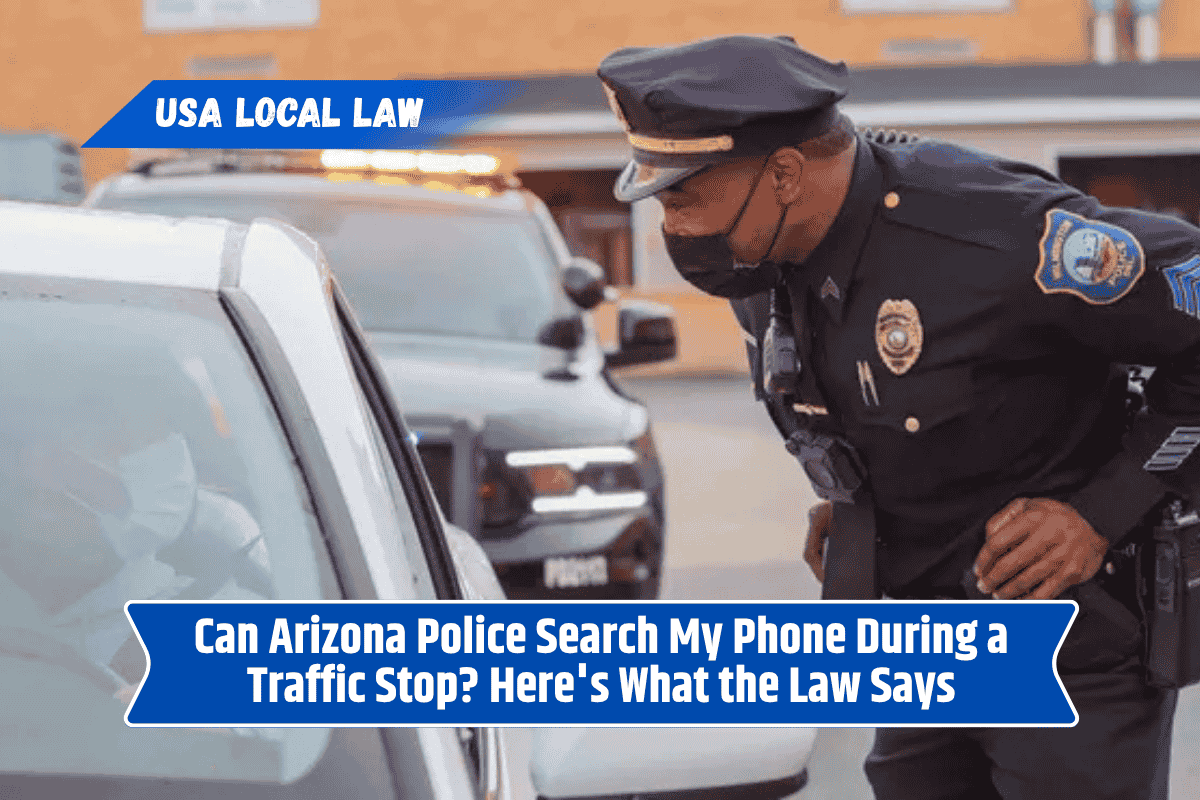When you’re pulled over by the police in Arizona, it’s normal to feel nervous—especially if they ask to check your phone. Many people don’t know their legal rights in such situations.
So, can police officers actually search your phone during a traffic stop? Let’s break it down in simple words so you understand what the law really says in Arizona.
Your Phone Is Protected Under the Constitution
In the United States, the Fourth Amendment protects you from unreasonable searches and seizures. This means that police can’t just take your phone and go through it without a strong reason. Your phone holds private information like texts, photos, apps, and more, which the law sees as personal property.
Police Usually Need a Warrant
In most cases, Arizona police need a warrant signed by a judge before they can search your phone. This is because phones today carry a lot of personal data, and courts have ruled that police can’t just search them without permission.
This was confirmed in a big case in 2014 (Riley v. California), where the U.S. Supreme Court clearly said police officers must get a warrant to search your phone—even if you are under arrest.
When Can They Search Without a Warrant?
There are a few special situations where Arizona police can search your phone without a warrant:
You Give Them Permission
If you say “yes” and let them check your phone, they can legally do it. But remember, you’re not required to say yes. If you say no, they can’t force you without a warrant.
There’s an Emergency
If police believe there’s an immediate danger—like preventing a crime, saving someone’s life, or stopping serious harm—they might search without a warrant. But these situations are rare and must be clearly justified.
You’re On Probation or Parole
If you’re on parole or probation, your rights may be limited, and your phone could be searched without a warrant, depending on the conditions set by the court.
What Should You Do If Police Ask to Search Your Phone?
If you’re pulled over and the police ask to look at your phone, stay calm and polite. You can say:
“I don’t consent to a search.”
This clearly tells them you’re using your legal right. Don’t argue, fight, or try to hide your phone—just calmly say you don’t agree. If they still search it, that may be illegal, and you can talk to a lawyer later.
What If They Take Your Phone Anyway?
If the police take your phone, they usually still need a warrant to unlock and search it. You’re also not legally required to give them your phone passcode or fingerprint unless a judge orders you to do so.
Can They Search the Car and Not the Phone?
Yes. If the police have a reason to search your car (like smelling drugs or seeing something suspicious), they can look through your car without a warrant. But that does not give them the right to search your phone unless one of the earlier exceptions applies.
What About Locked Phones?
Even if police take your phone, they may not be able to unlock it without your help. Courts have debated whether forcing you to give your password or fingerprint is legal. Right now, laws are still developing in this area, but in general, you have strong privacy protections when it comes to your locked phone.
In simple words, Arizona police usually cannot search your phone during a traffic stop without your permission or a warrant. Your phone is protected by the Constitution, and you have every right to say no to a search.
Knowing your rights can help you stay calm and protect your privacy. If something feels wrong or confusing, it’s best to talk to a lawyer afterward.
